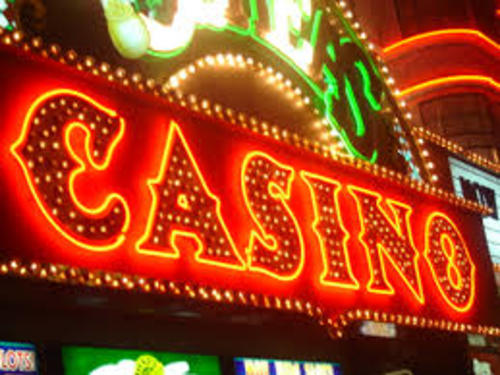Can you beat the Casino?
 You enter the casino with unlimited cash at your disposal. The casino offers you the following deal...
You enter the casino with unlimited cash at your disposal. The casino offers you the following deal...
There is a stack of blank cards. The casino dealer then proceeds to secretly write any positive integer on each of the cards. Once he is done, the deck is handed over to you, numbers facing down. You may shuffle cards as you desire. You can then count and turn over as many cards as you wish.
If the last card that you choose to flip turns out to be the card with the highest number in the deck, you win. Otherwise you lose.
Each game costs bucks to play. If you win the game, you get bucks; otherwise you lose only the bucks you paid to play. The dealer writes down a new set of numbers every game.
Do you think you should play this game?
Using OPTIMAL strategy, what is the expected value of your profit (or loss designated by negative sign) after playing games ?
The answer is 34209.
This section requires Javascript.
You are seeing this because something didn't load right. We suggest you, (a) try
refreshing the page, (b) enabling javascript if it is disabled on your browser and,
finally, (c)
loading the
non-javascript version of this page
. We're sorry about the hassle.
The optimal strategy is to divide the deck in half and make two stacks of 5 0 cards each. Now turn over all the cards of stack 1 and set aside the highest number you find.Then turn over the cards, one by one, of stack 2 till you get a number higher than the card you set aside. This is the last card you flip.
There is a 5 0 % probability that the highest card is in stack 2 (either it is or it isn't!) and a 5 0 % chance that the second-highest card is in stack 1 .
Combining the probabilities there is a 2 5 % chance of getting the scenario mentioned above. So there is a 4 3 chance of losing and 4 1 chance of winning a game.
If you lose, you lose 1 0 0 bucks, if you win you make profit of 4 0 0 bucks
Expected value of winnings per game =
4 3 ∗ ( − 1 0 0 ) + 4 1 ∗ 4 0 0 = 2 5
Expected value of winnings over 4 0 0 games = 4 0 0 ∗ 2 5 = 1 0 0 0 0 bucks.